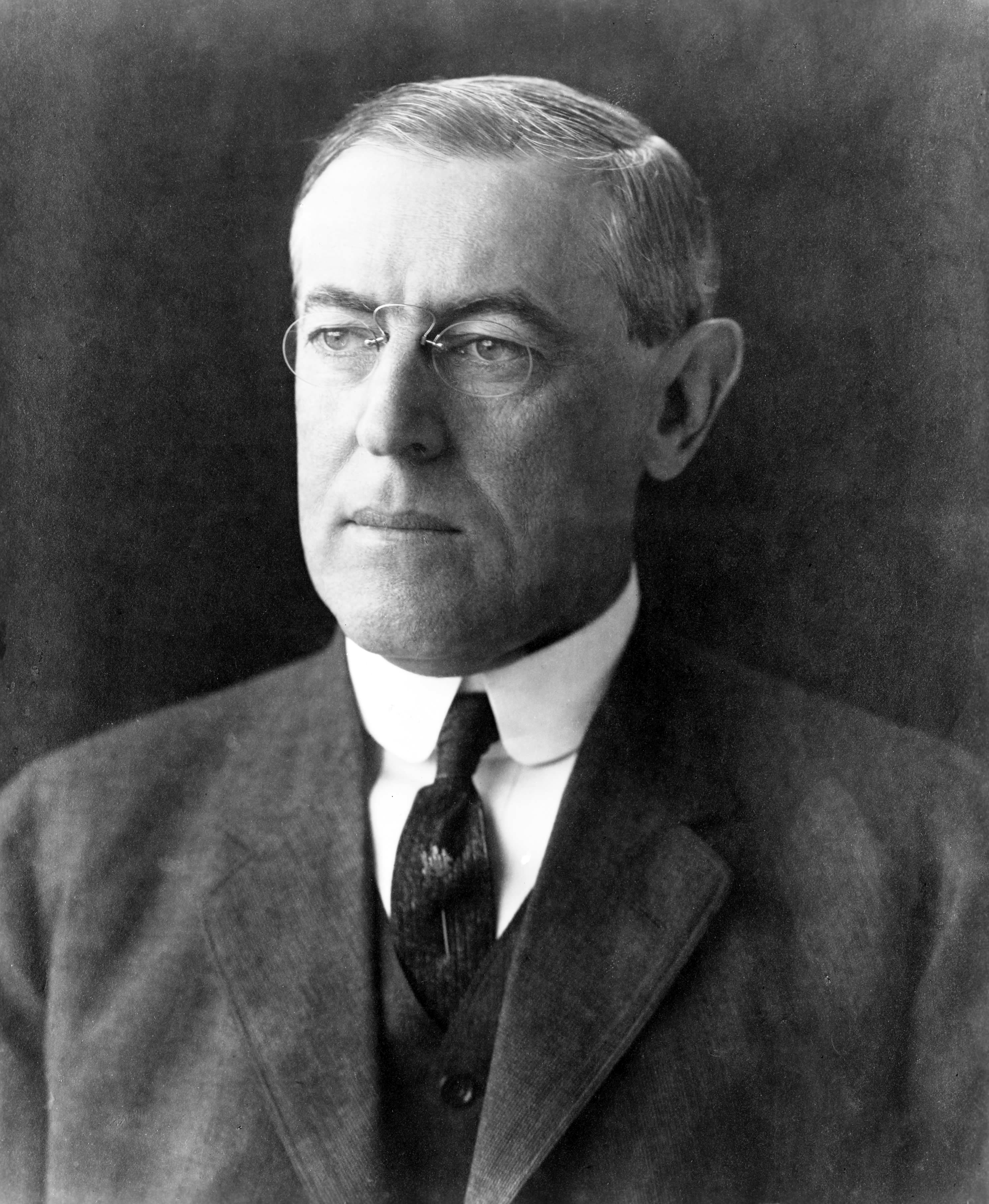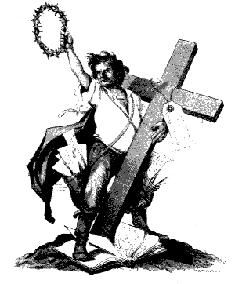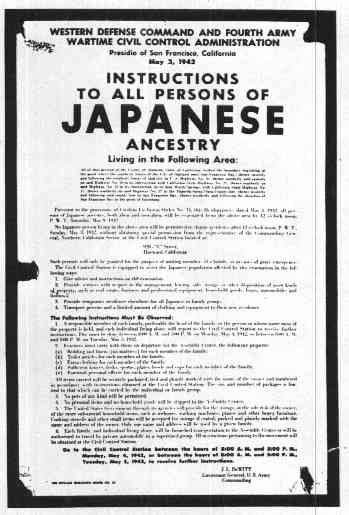Thursday, April 11, 2013
LAD #37: Brown v. Board of Education
Saturday, March 23, 2013
LAD #36: Truman Doctrine

President Harry Truman announced his policy of containment of communism in his Truman Doctrine on March 12, 1947. It spoke directly about Greece and Turkey, two countries in Eastern Europe trying to resist Soviet influence politically and economically. Truman wanted to provide military and economic help to countries fighting against communism because he believed communism threatened the peace of the world and of the United States. This speech lead to $400 millions dollars sent to these countries to aid them in their fight. The United States did this to protect liberty around the world, and set the policy of containment up for the Cold War.
Tuesday, March 12, 2013
LAD #35: Executive Order #9066
FDR issued his Executive Order #9066 on February 19, 1942. He stated that this document was needed to prevent any acts of espionage or any other actions that were against the United States or its war effort. Roosevelt declared that the Secretary of War and Military Commanders had the power to designate military zones. He granted his support to other federal agencies and bureaus as well, to supply them with all the materials they may need. He ordered all federal agencies to support the war effort with all of their resources such as food, land, shelter, equipment, facilities, utilities, etc. This order led to Japanese internment camps in military zones in America, in which innocent Japanese- Americans were lead to prevent espionage.
Monday, March 11, 2013
LAD #34: FDR's Declaration of War
After the Japanese attack on Pearl Harbor on December 7th, 1941, FDR addressed Congress asking for a declaration of war. The attack killed 2,335 people, but did not destroy the US aircraft carriers. Referring to the "date which will live in infamy," he states that the US was at peace with Japan prior, and that the attack was not initiated by the United States. He also tells that an hour before the attack, the Japanese Ambassador delivered a message stating that there was no threat of an attack. FDR also states that the Japanese were also attacking islands such as Wake Island, Guam, and the Philippines. Roosevelt closed by stating that the nation will be defended and that America would take a stand against the attacks of the Japanese. FDR wanted to show Japan and the rest of the world how strong America was, and how they would not tolerate violence toward their country. War was declared on Japan on December 8th, 1941, and three days later on Italy and Germany.
Monday, March 4, 2013
LAD #33: FDR's Inaugural Address
Franklin D Roosevelt took the oath of office in the midst of an extremely difficult time to lead the nation. He inherited the Great Depression from Herbert Hoover, and knew that he needed to take immediate action to relieve the nation. In his First Inaugural Address, he encouraged the nation to maintain it's composure. He believed that conditions would improve soon, and believed that "there is nothing to fear but fear itself". Although he speaks about the economic hardships of the country, he strives to stay positive by saying that the nation has so much to be thankful for. He believes that the wealth of Americans lies not in possessions and materials, but in hard work and integrity. He states that the biggest task to accomplish is putting people back to work, as the unemployment rate was the highest it had ever been. He also assured a strict supervision of all banking, credits, and investments, that there must be an end to speculation with other people's money, and there must be provision for an adequate but sound currency. Finally, he closes with his belief that persistence and dedication is needed to overcome the obstacles the nation is facing, and that change will come.
Sunday, March 3, 2013
LAD #32: Kellogg-Briand Peace Pact
On August 17, 1928, the Kellogg-Briand Peace Pact was signed in Paris at the French Foreign Ministry. The pact claimed that all the powers that signed the treaty would not use war to resolve "disputes or conflicts of whatever nature or of whatever origin they may be, which may arise among them". The only way it allowed arguments to be settled was by passive means- absolutely no war. It also threatened that countries who did not follow the treaty would "be denied the benefits furnished by this treaty". The pact was unsuccessful, but created a diverse bond between the United States, Australia,Canada, Czechoslovakia, Germany, Great Britain, India, Irish Free State, Italy, New Zealand, Union of South Africa, Poland, Belgium, France, and Japan.
Wednesday, February 13, 2013
LAD #31- Wilson's Fourteen Points

President Wilson was hoping for world peace with the creation of his Fourteen Points. He believed that peace with Russia was possible in a short amount of time, and that the Great War was fought for a moral and justified cause. Wilson's points were: open and public treaties without private dealings, freedom of the seas, removal of economic barriers and establishment of equal trade, reduction of armaments, impartial adjustment of colonial claims, an evacuation and help for Russia, sovereignty for Belgium, a correction of the wrong-doings of the Prussians to France in Alsace-Lorraine, the readjustment of Italian borders, free opportunity for development of Austria-Hungary, evacuation of Rumania, Serbia, and Montenegro, free passage and sovereignty for the Turkish Romanians in Dardanelles, creation of a sovereign Polish state, and an association of nations geared towards world peace and protection. This last point, which created the League of Nations, was thought to be the most important by Wilson because he compromised all of his other points for it's creation. These Fourteen Points were an attempt to settle the "War to End All Wars" and to prevent further conflicts, although this proved to be impossible.
Monday, February 4, 2013
LAD #30: Schenck v. US

Schenck decided to send out a message to the public that they peacefully resist the Conscription Act in place during the Great War. As a result, he was charged with the violation of the Espionage Act due to his obstruction to recruitment. Holmes declared that Schenck's words were not protected under the First Amendment because of the circumstances. The United States was at war, and therefore could not afford Schneck's actions because they caused a "clear and present danger" to the United States. The government feared people would follow Schenck's orders and disobey the government. This case essentially established that Congress had the right to limit free speech during wartime as deemed necessary.
Tuesday, January 29, 2013
LAD #29: Keating-Owen Child Labor Act
 In 1916, the Keating-Owen Child Labor Act was passed by Congress following the proposal of Senator Beveridge. This act regulated child labor in factories by using the Federal government's power to regulate interstate commerce. It also prevented the sale of products from any company that was employing children under the age of 14, and any mine that was employing children under the age of 16. It also banned the sale of products from any business that had children under 16 working night shifts or more than 8 hours a day. After this act was approved of by President Wilson, it was declared unconstitutional due to the case Hammer v. Dagenhart. Change regarding child labor took a long time despite public support, and the cruel treatment of children at the factories and mines continued. The Supreme Court reversed its opinion in Hammer v. Dagenhart in 1941.
In 1916, the Keating-Owen Child Labor Act was passed by Congress following the proposal of Senator Beveridge. This act regulated child labor in factories by using the Federal government's power to regulate interstate commerce. It also prevented the sale of products from any company that was employing children under the age of 14, and any mine that was employing children under the age of 16. It also banned the sale of products from any business that had children under 16 working night shifts or more than 8 hours a day. After this act was approved of by President Wilson, it was declared unconstitutional due to the case Hammer v. Dagenhart. Change regarding child labor took a long time despite public support, and the cruel treatment of children at the factories and mines continued. The Supreme Court reversed its opinion in Hammer v. Dagenhart in 1941.
LAD #28: Wilson's First Inaugural

In 1912, the split in the election between Republican Taft and Progressive Roosevelt lead to the election of Democratic Woodrow Wilson. In his First Inaugural Address, Wilson spoke about the morals of the American people and the need for change in society. He first talked about how successful the Industrial Revolution was, but he also addresses the underlying issues it caused. The boom in industry had lead to much corruption, which needed to be combated. He spoke of "the human cost, the cost of lives snuffed out, (of) energies overtaxed and broken". He also admitted that the government "has too often been made use of for private and selfish purposes" and he is essentially stressing the need for reform. He promised reforms such as sanitary laws, pure food laws, and laws regarding conditions of labor. These promises were carried out through the Pure Food and Drug Act passed during his administration. He desired to restore the nation, rather than destroy it. Although he acknowledged that the nation is in need of a serious makeover, he conveys a message of hope for reform for his presidency.
LAD #27: Clayton Anti-Trust Act
Friday, January 18, 2013
LAD 26: MLK's 'I Have a Dream' Speech
 In March, 1963 at the Lincoln Memorial in Washington, DC, Martin Luther King Jr. delivered his famous 'I Have a Dream' speech. He opened with the well known line "I have a dream". This statement was repeated throughout his speech, and the audience reacted with a great emotional response. His dream is of a day where the "content of their character" judges men, not skin color. He also dreams of a day where his children can play with the white children. He references the preamble of the Constitution that "all men are created equal", and that blacks should receive a status equal to whites. He also dreams of a day in which crooked things will be bent strait, wrongs will be righted, and former slave owners will sit down to dinner with their freed slaves. This speech resounded throughout America, and the waves it raised are still felt today.
In March, 1963 at the Lincoln Memorial in Washington, DC, Martin Luther King Jr. delivered his famous 'I Have a Dream' speech. He opened with the well known line "I have a dream". This statement was repeated throughout his speech, and the audience reacted with a great emotional response. His dream is of a day where the "content of their character" judges men, not skin color. He also dreams of a day where his children can play with the white children. He references the preamble of the Constitution that "all men are created equal", and that blacks should receive a status equal to whites. He also dreams of a day in which crooked things will be bent strait, wrongs will be righted, and former slave owners will sit down to dinner with their freed slaves. This speech resounded throughout America, and the waves it raised are still felt today.
Saturday, January 5, 2013
LAD #24: Cross of Gold Speech

In 1896, William Jennings Bryan delivered a speech regarding his opinion of silver currency as 16 to 1 in the American economy. In doing this, farmers in debt would be helped because of the increase in the amount of currency in circulation. Bryan believed his cause to be humane and right for America. He does not want to fight, but rather clear the waters. He argues that America is a country for the people, and believes that he is representing the masses when he states his want for the coinage of silver. He also supports an income tax, and that the nation needed a leader to distribute the wealth to the people. He concedes that many city people support the gold standard, but informs them that their wealth comes from the poor, and the poor ned the coinage of silver.
LAD #23: The Populist Party Platform
The Populist Party was a reaction to industrialization, and opposed big business. It emerged from the farmer's alliance in the 1800s, and was the third independent party of Democrats and Republicans. They were usually Southern farmers, and opposed big business because small farmers could not compete with it. Populists believed that the workers were being denied their basic rights, and supported workers and the formation of unions. Populists opposed immigration because it took away jobs from Americans. They believed in the increase of power of the government and the free coinage of silver and gold in the ratio of 16 to 1. They also wanted an income tax, an increase in the circulation of wealth, and the formation of a permanent union of workers. Essentially, the Populists were fighting for more more power for the average working man.
LAD #25: Dawes Severalty Act
Friday, January 4, 2013
LAD #22: McKinley's War Message
 President McKinley delivered his war message to Congress in 1898, demanding that the war in Cuba be ended because of four reasons. First, he demands that the United States end the barbarities in Cuba as it is their duty. Second, assistance is owed to the citizens of Cuba to give them protection and indemnity for life and property. Third, failure to intervene would lead to devastation of commerce, trade, and business, and the destruction of property and land. Fourth and most importantly, the war is a threat to the peace and neutrality of America. McKinley argues that the destruction of the Maine is evidence that this conflict was too dangerous to not intervene. McKinley begged Congress "in the name of humanity" that the war in Cuba must be stopped. He believed that even after the conflict in Cuba had been resolved, that American support should continue. Lastly, he mentions that Spain had recently informed America that they were planning on ending hostilities, but if not the conflict in Cuba would still exist.
President McKinley delivered his war message to Congress in 1898, demanding that the war in Cuba be ended because of four reasons. First, he demands that the United States end the barbarities in Cuba as it is their duty. Second, assistance is owed to the citizens of Cuba to give them protection and indemnity for life and property. Third, failure to intervene would lead to devastation of commerce, trade, and business, and the destruction of property and land. Fourth and most importantly, the war is a threat to the peace and neutrality of America. McKinley argues that the destruction of the Maine is evidence that this conflict was too dangerous to not intervene. McKinley begged Congress "in the name of humanity" that the war in Cuba must be stopped. He believed that even after the conflict in Cuba had been resolved, that American support should continue. Lastly, he mentions that Spain had recently informed America that they were planning on ending hostilities, but if not the conflict in Cuba would still exist.
Subscribe to:
Comments (Atom)




